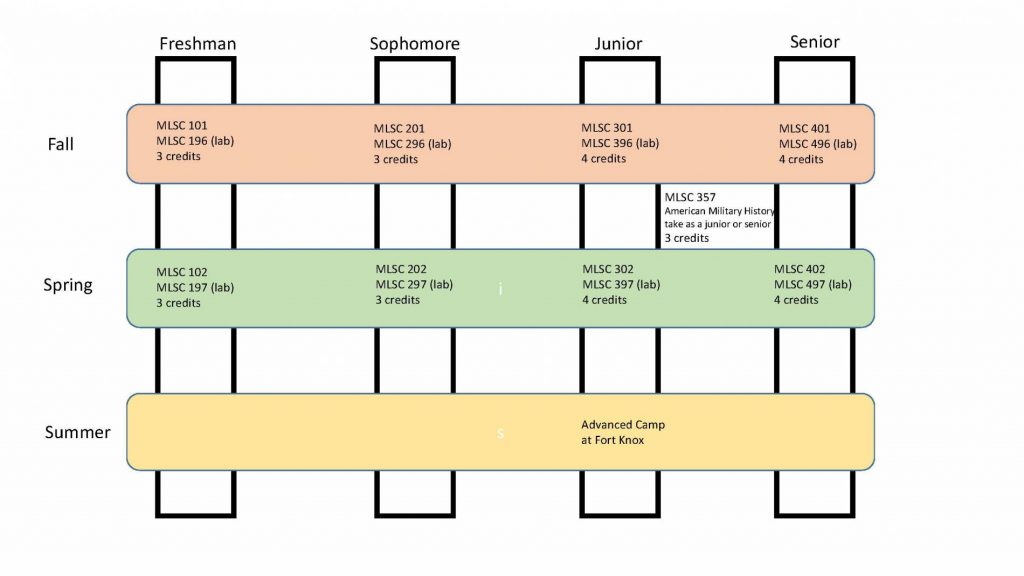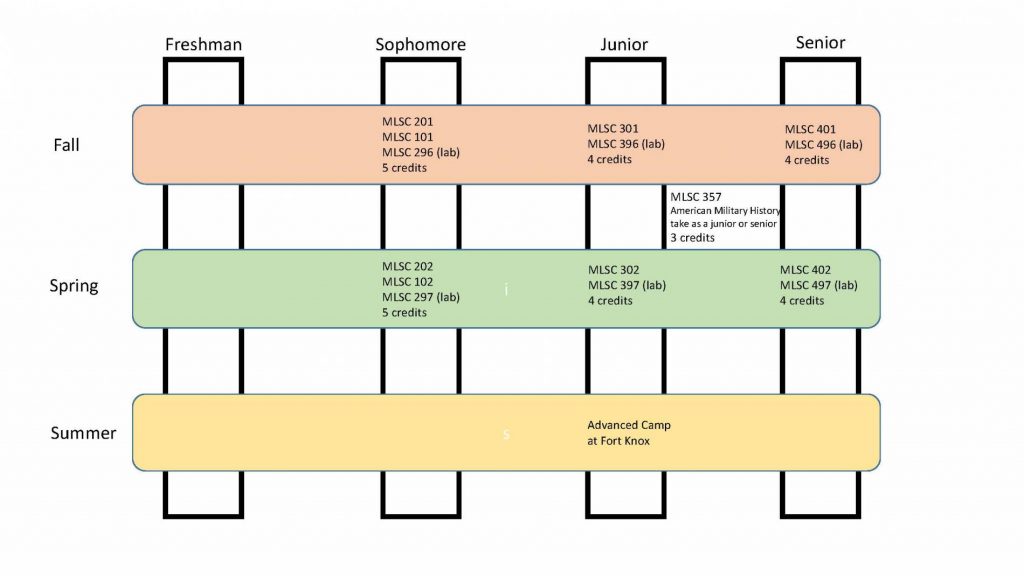The Army ROTC program offers a full, four year curriculum. Each semester, cadets attend an academic class, a “lab” that lets them apply what they learned in class, and can attend up to three sessions of physical training (PT) a week.
Cadets who intend to commission will also attend Advanced Camp at Fort Knox, usually during the summer following their junior year.
You can join the ROTC program as a freshman, a sophomore, or even later. To see the classes you’ll be taking, select the tab below that matches your class. And feel free to contact us to find out exactly how the Army ROTC program works with your schedule.




